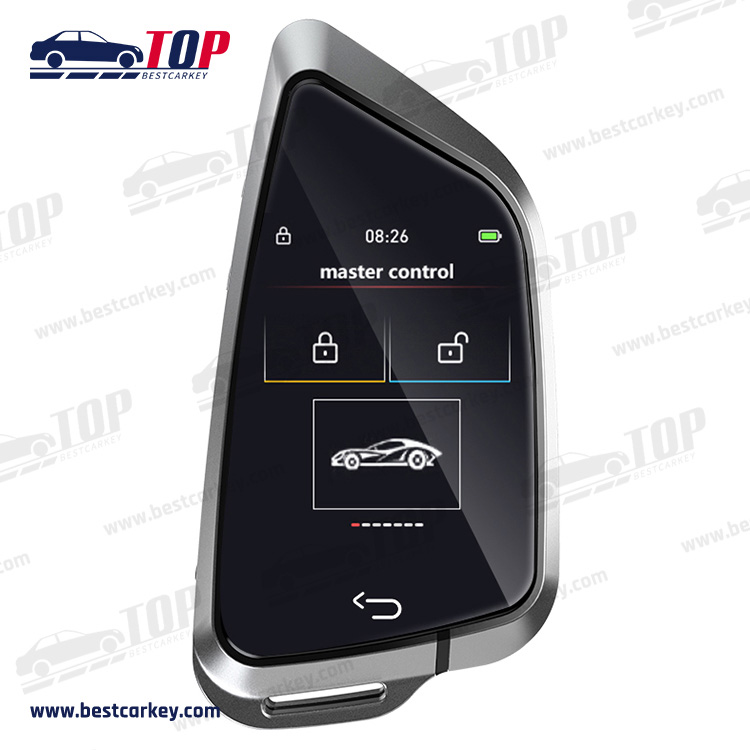The Essential Role of Car Keys in Modern Vehicles
2025-03-26
Car keys are much more than simple tools to start your car—they’ve become integral parts of vehicle security, convenience, and technology. From the traditional metal keys to advanced smart key systems, car keys have evolved over time to reflect advancements in automotive technology. In this blog, we will dive into the importance of car keys, their different types, and how they continue to shape our driving experiences.
The Evolution of Car Keys
In the early days of automobiles, car keys were straightforward metal devices that turned locks to open the car and start the engine. They were simple and effective, but as car technology developed, so did the design and function of car keys. Today’s car keys are complex systems that provide much more than just the ability to start a vehicle.
One of the key innovations in car keys came with the introduction of transponder keys. These keys contain a small microchip that communicates with the car’s ignition system, ensuring that only the correct key can start the vehicle. This greatly enhanced security, as it made it nearly impossible to start a car without the matching transponder key. It also reduced the risk of car theft significantly.
Over the years, car keys have become even more sophisticated. Key fobs and smart keys now allow drivers to perform a variety of functions without having to physically insert a key into the ignition. These advancements have not only made our cars more secure but also more convenient to operate.
Different Types of Car Keys
1. Traditional Metal Keys: The simplest form of a car key, traditional keys are made of metal and are used to physically turn a lock and start the engine. While rare in modern vehicles, they can still be found in older cars or some basic models.
2. Transponder Keys: These keys contain an embedded chip that sends a unique signal to the car’s ignition system. If the code from the transponder doesn’t match the car’s system, the engine won’t start. This added layer of security makes it difficult for thieves to replicate or bypass the key.
3. Remote Keyless Entry Fobs: These fobs allow for remote locking and unlocking of car doors, trunk release, and sometimes even remote engine starting. Most modern vehicles come with a remote keyless entry fob, offering added convenience and security.
4. Smart Keys: A smart key, also known as a keyless entry system, allows the driver to unlock and start the car without physically inserting the key into the ignition. The key fob uses proximity sensors to detect when the key is near the car, enabling features such as hands-free entry and push-to-start functionality. Smart keys can also store settings for multiple drivers, remembering seat positions, mirror adjustments, and climate control preferences.
5. Push-to-Start Keys: Often part of the smart key system, push-to-start technology allows drivers to start their car with a button rather than turning a key. As long as the key fob is inside the vehicle, the driver can press the button to start the engine, providing an extra level of convenience.
The Convenience and Security of Modern Car Keys
One of the primary reasons car keys have become so advanced is to enhance both convenience and security. In the past, if you lost your key, you could simply get a new one made at a locksmith. Now, losing a key means potentially losing access to your car unless you have a replacement fob or transponder chip. This added complexity makes it more difficult for thieves to steal vehicles, as they need both the physical key and the code it communicates with to gain access.
Additionally, features like remote start and keyless entry make the driving experience more comfortable. For instance, on cold mornings, you can start your car from inside your home, allowing it to warm up before you drive. Similarly, keyless entry means you can unlock your car without taking your keys out of your pocket or bag, which is incredibly convenient when your hands are full.
What Happens if You Lose Your Car Key?
Losing a car key, especially a smart key or fob, can be a frustrating experience. Modern car keys are linked to the vehicle's security system, which means they often cannot be easily replaced without going through the car's dealership or a specialized locksmith. In most cases, you’ll need to provide proof of ownership and may have to wait for a new key to be programmed specifically for your car.
For smart keys, the process can be more complicated and expensive since the key must be paired with the vehicle’s electronic system. It’s always a good idea to have a spare key or fob made as a backup, just in case.
Conclusion
Car keys may seem like simple objects, but they play a crucial role in keeping our vehicles secure and accessible. The transition from traditional metal keys to advanced smart key systems shows how far technology has come in the automotive industry. These modern keys offer greater security, convenience, and functionality, making them an essential part of the driving experience.
As we continue to see advancements in automotive technology, car keys will likely become even more integrated with digital systems, further enhancing their role in vehicle safety and ease of use. So, the next time you grab your car key, take a moment to appreciate the technology behind it—because it’s far more than just a tool to start your engine.



